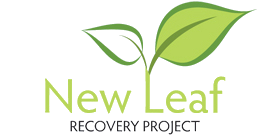Al Pacino Alcohol Addiction & Decades of Sobriety

Al Pacino is a world-renowned actor, famous for his iconic performances over the decades, including characters such as Michael Corleone and Tony Montana. He has been successful in conjuring up intense performances that have redefined acting throughout the decades.
Sadly, behind the legendary roles and critical acclaim, he has a deeply personal story of addiction, struggle and triumph. He has journeyed through grief, loss and alcohol addiction before finding decades of sobriety that have reshaped his life and career.
Al Pacino’s Rise to Stardom
The pathway to stardom was not clearly laid out for Pacino; he took a far from conventional journey towards becoming the critically acclaimed actor that we now know.
His early life was marked by financial struggles and a difficult family environment. From an early age he gravitated towards acting with encouragement from his mother. He was able to find solace in acting and the roles he took on. By the age of 9, Pacino was a smoker; at 13 years old he was drinking hard liquor. His friends, who formed part of his gang, sadly died from heroin overdoses; however, Pacino’s gravitation towards acting kept him away from drug abuse and focused on his acting passion.
At the age of 27, he met Charles Laughton in Greenwich Village, a meeting that he states changed his life. Pacino was encouraged to enrol at Laughton’s acting studio and was mentored during his time there and beyond. He was introduced to excellent writers at the time and dedicated his time to developing his career further. In 1969, he got his first role in Me, Natalie whilst also making his Broadway debut.
From this point on, Pacino excelled in the film industry, taking Hollywood by storm! In 1972, he took on the iconic role of Michael Corleone in The Godfather. Following this, the 1970s were packed with his films, including Serpico, Dog Day Afternoon and others.
The Shadow of Addiction
Unfortunately, during the height of his stardom, he had fallen prey to alcohol addiction, using this as a means of coping with his emotions. Naturally, Pacino was a shy individual, he was quickly overwhelmed but his newfound stardom. Part of the culture during the 1970s was alcohol consumption, meaning many people struggled with excess use during this time. Pacino admits in multiple interviews that the 1970s became a ‘blur’ for him due to his drinking and that it was his means of coping with stress in personal and professional life. The intensity of his roles meant that he found solace in drinking for a number of years.
Alcohol addiction has started to cause significant problems with Pacino’s working life and his personal health. He experienced blackouts and memory loss from an early age, which concerned him.
Pacino’s Addiction Realisation & Turning Point
Although he has not widely spoken in detail about the turning point from addiction, Pacino has said that there was a point in time that he experienced a profound shift leading to his decision to stop drinking which has resulted in decades of sobriety.
Long-term friend and mentor Charles Laughton has struggled with alcohol himself, but had taken steps toward sobriety a year or so before Pacino. As an influential figure throughout Pacino’s life, Laughton took steps to beg Pacino to stop drinking. He asked him to stop drinking in order to re-evaluate his life and career choices from a sober state of mind. This intervention caused Pacino to confront his alcohol addiction and take steps towards sobriety that have now lasted decades.
Rehabilitation That Led To Transformation
Having acknowledged his alcohol addiction, Pacino not only experienced sobriety but a complete transformation. Since 1977, Pacino has been sober, highlighting his resilience and profound commitment to sobriety.
On a professional level, Pacino found that sobriety allowed him to maintain his powerful depiction of characters, but also to gain a clearer understanding, focus and depth to his work. He is able to project raw emotion through his work that is not clouded by early life struggles. Throughout his career and sobriety, he has continued to deliver iconic and acclaimed performances in films like Scarface, Heat and Scent of Woman. He has received an Academy Award, Tony Awards and Primetime Emmy Awards, giving him a triple crown in acting and making him one of Hollywood’s greatest performers.
In his personal life, he has been able to develop healthy relationships with loved ones, cultivate a greater sense of self-awareness and find peace that once eluded him. He is a father, fostering deep connections with his children throughout their lives.
The Power of Addiction Rehabilitation
Al Pacino’s struggle with alcohol addiction and his decades of sobriety stand as a testament to his commitment to a healthier and happier lifestyle. It is a stark reminder that addiction is not a life sentence, and with support, you can be transformed.
If you have been struggling with alcohol addiction or someone you love is struggling, seek support from New Leaf Recovery today. We provide private detoxification and rehabilitation for those struggling with alcohol addiction, substance addictions, illegal drug addictions or behavioural addictions.
Our rehabilitation team are on hand to provide 24/7 support for those struggling, guiding everyone through the process to find a brighter, sober future. Our rehabilitation programme includes a range of therapies that help provide you with new methods of coping and expressing your emotions, including Art Therapy, Movement Therapy, Cognitive Behavioural Therapy (CBT) and Meditation. For more information about our rehabilitation therapies or detoxification, speak to our team today.
We provide flexible lengths of stay to give you the right support and aftercare in your addiction rehabilitation.
Contact New Leaf Recovery today by giving us a call or using our contact form below.
Receive a Free Call Back
"*" indicates required fields
A Complete Recovery Journey. From your initial enquiry, all the way through treatment and beyond with ongoing support, New Leaf Recovery are there to guide and support you.
New Leaf offers a complete journey of treatment, from initial detoxification and rehabilitation to ongoing support, including aftercare, family support, and beyond into long-term recovery.
Getting the right accommodation enables us to provide the right backdrop for our recovery methods. Any form of rehabilitation needs to happen in a safe, comfortable, secure and friendly environment.
Receive a Free Call Back
"*" indicates required fields










